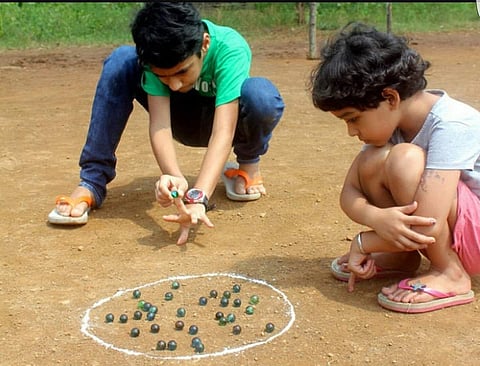

As a 90s kid you may remember playing hide n seek, tag or just plain monkeying around your locality during theday. However, an international survey has found that Indian children today have less exposure to playing in the outdoors than their parents. The survey, conducted in 10 countries, stated that children play outside for one hour or less.
The study included a 20 minute online quantitative survey with over 12,000 parents who have at least one child aged 5- 12. In response to this shocking new development, a Delhi-based NGO is calling on teachers across India to take at least one lesson outdoors on October 12 as part of the global Outdoor Classroom Day campaign.
"We are calling on teachers, parents and anyone who cares about childhood to get involved in the campaign on October 12th, 2017," said Sudeshna Chatterjee, CEO of Action for Children's Environments (ACE).
The survey was conducted by market research firm Edelman Intelligence, in February and March 2016, across 10 countries - India, US, Brazil, UK, Turkey, Portugal, South Africa, Vietnam, China, and Indonesia.
A total of 1,000 interviews were conducted in the 10 countries except the UK and the US, where 2,000 per market were performed to meet media standards. Researchers found that in India, 56 per cent of parents believe their child has less opportunities to play than they did as a child, researchers said.
"Children have higher physical energy level and it has to be channelised properly for which outdoor games and activities are very important," Dr Shweta Sharma, Clinical Psychologist at Columbia Asia Hospital, Gurgaon said.
"Children are also exposed to experimental learning and there is more usage of their brains when they play outdoors," said Sharma, who was not involved in the study.
"When they are confined indoors, their immune system is less developed and parents, schools and NGOs working in the areas of child development must find ways to give as many opportunities as possible to children for outdoor activities," she said.
Outdoor learning improves children's health, engages them with learning and leads to a greater understanding of nature, said Chatterjee.
According to ACE, in 2016, almost half a million children around the world were involved in Outdoor Classroom Day by having their lessons outside (within and outside school premises) and celebrating playtime. Previous research has found opportunities for spontaneous play may be the only requirement that young children need to increase their physical activity.
